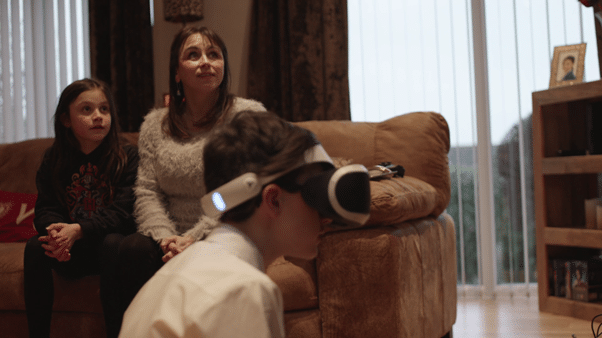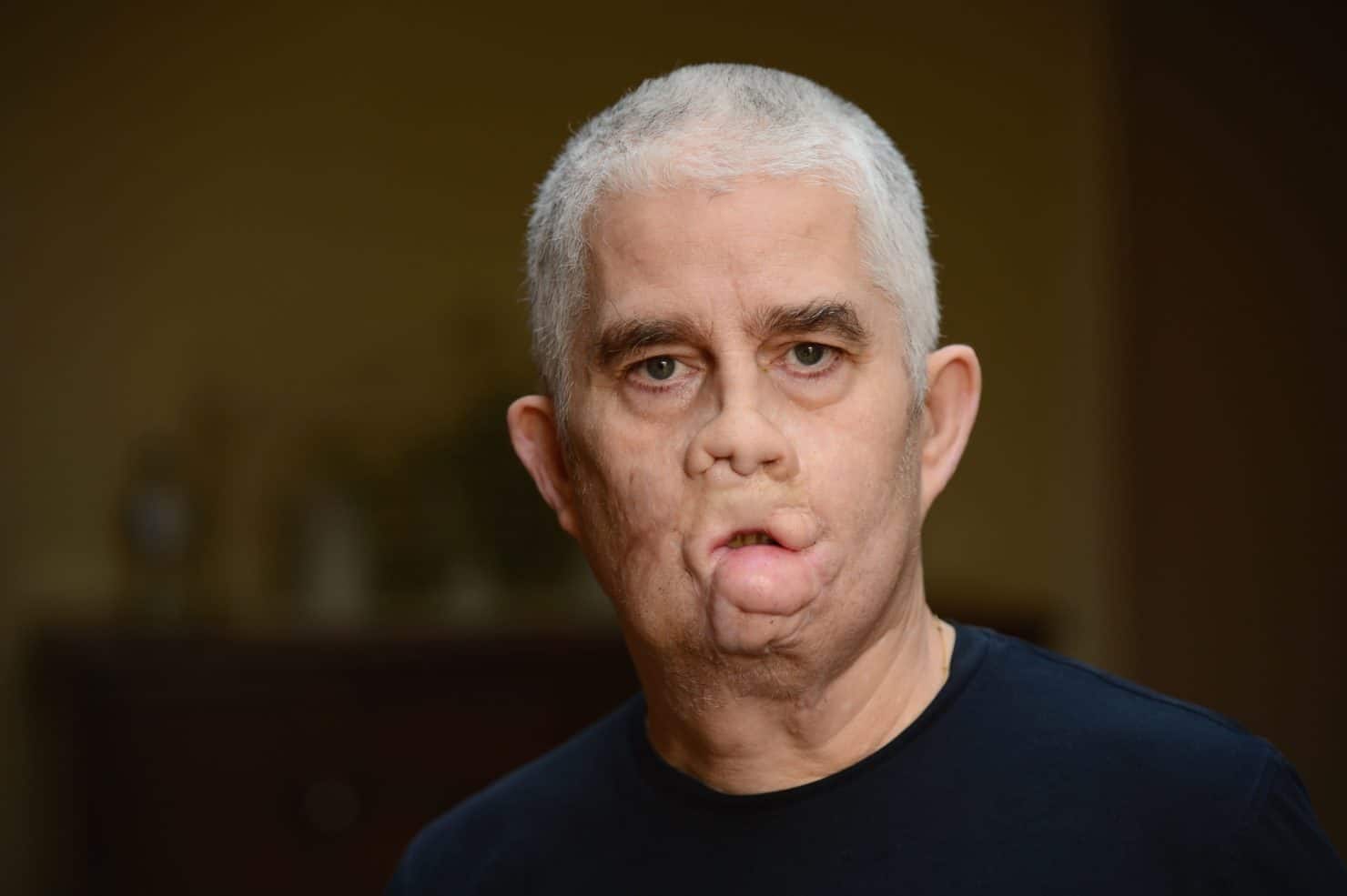
 " alt="">
" alt="">
Sepsis negligence claims

Reviewed by
Peter Rigby - Managing Director of Medical Negligence | Last updated on: 6th February, 2025
We've got your Sepsis Negligence Claim covered
- No win No fee
- Not just lawyers - real specialists
- No obligation
- UK's highest-rated medical negligence solicitors
Sepsis is also commonly known as septicemia or blood poisoning. It is a life-threatening condition and can have devastating consequences if symptoms are missed or if diagnosis is delayed. Sepsis compensation can offer financial support for your rehabilitation and care needs.
Once diagnosed, sepsis requires urgent medical attention. If left untreated, it can lead to organ failure or even death. According to the UK Sepsis Trust, 245,000 people are affected by sepsis each year, 48,000 of which result in death – that equates to five deaths per hour.
At Patient Claim Line, we understand the difficulties of dealing with a sepsis infection as a result of medical negligence that could have been avoided. With those difficulties in mind, our sepsis negligence experts are ready to support and guide you through your sepsis compensation claim to help you get the justice you deserve.
Find out if you
have a claim
Take the 10-second claim test
Free Advice
03300 080 352
claim form
We're the highest-rated No Win No Fee medical negligence solicitors on Trustpilot
What is Sepsis?
Sepsis, or septicemia, is a serious and life-threatening complication that occurs when your immune system overreacts to infection. It is more common in individuals with a weakened immune system. Instead of simply fighting the infection, the body releases chemicals that trigger widespread inflammation, which can lead to blood clots, leaking blood vessels and organ damage. Sepsis is a medical emergency and can be fatal if necessary medical treatment or intervention has not taken place.
What is a Sepsis Negligence Claim?
When medical professionals fail to identify or delay the diagnosis of sepsis, this can be considered medical negligence and you could be entitled to make a sepsis negligence claim.
Sepsis negligence also occurs when medical staff fail to provide adequate treatment for infection. The consequences faced from preventable sepsis can result in life-changing injuries for patients, and these consequences that have been caused by medical negligence should be compensated for. Our solicitors are here to ensure that you receive the correct sepsis compensation for your sepsis claim.
You could be entitled to sepsis compensation if you have suffered from sepsis that could have been prevented with adequate medical treatment. To find out if you have a sepsis claim, contact us today.
Types of Sepsis Medical Negligence Claims
In medical negligence sepsis cases, the healthcare provider may be at fault for failing to identify the symptoms of sepsis or failing to administer the necessary treatment promptly.
Sepsis misdiagnosis is one of the most common forms of medical negligence and can have devastating consequences for patients. Sepsis is often mistaken for other conditions, especially in its early stages, because the symptoms can overlap with other infections or illnesses. When a doctor or healthcare professional fails to recognise the symptoms of sepsis or misinterprets them as something less serious, the condition can worsen rapidly, increasing the risk of organ failure, amputations or even death.
Sepsis misdiagnosis claims are often complex as the defence in these cases might argue that the symptoms were too vague to immediately identify sepsis. However, many times the misdiagnosis could have been avoided if appropriate diagnostic tests had been carried out or if the symptoms had been more thoroughly investigated.
Our dedicated legal specialists are experienced in handling all kinds of sepsis claims and have successfully represented individuals who have experienced sepsis as a result of medical negligence.
Some of the sepsis claims that we have covered include:
– Sepsis misdiagnosis, diagnosis delays or delays in treatment leading to sepsis
– Exposure to infection after treatment or surgery
– Avoidable sepsis resulting in organ dysfunction or surgical amputation
– Families and loved ones of patients who have sadly passed away due to sepsis
There are many cases of sepsis which have been brought about as a result of medical negligence. Even with treatment, it is possible to get permanent organ damage. This is especially true for people with pre-existing conditions affecting their immune systems.
Whilst sepsis compensation can’t reverse the devastation caused by medical negligence, it can help you financially to make adjustments to cope with the aftermath of sepsis, including symptoms of post-sepsis syndrome, joint pain and amputation. Adjustments may include accommodation adaptations or changes (including specialist equipment), or covering the costs of emotional or physical care.
Can sepsis cause brain damage?
Yes, sepsis can cause brain damage by disrupting the blood flow and oxygen supply to the brain which can damage brain cells. If left untreated, it can lead to symptoms such as confusion, memory problems and difficulty concentrating. In severe cases, sepsis can cause delirium, long-term brain dysfunction or even coma.
The longer sepsis goes untreated, the higher the risk of lasting cognitive issues such as trouble with thinking, memory or emotional regulation. Early and effective treatment is essential to reduce these risks and prevent permanent damage.
If you have suffered from a sepsis-related (or non-sepsis-related) brain injury as a result of medical negligence, our professionals are here to help.
Why Choose Patient Claim Line for your Sepsis Negligence Claim?
Not just lawyers — medical negligence experts
At Patient Claim Line we have more than 100 solicitors with a combined experience of over 400 years, we specialise in sepsis malpractice settlements, ensuring our clients receive the justice and financial support they deserve. Our expert team will work tirelessly on your behalf to secure the best possible settlement for your case.
It’s not enough to use a solicitor who sometimes covers medical negligence. You need solicitors that know medical negligence through and through. We deal exclusively in medical negligence cases and are experts in the field.
We believe that anyone who has suffered from medical negligence deserves justice. That’s why we operate on a ‘NO WIN NO FEE’ basis to prevent any financial burdens on those who have suffered so that you can focus on recovery.
CONTACT US TODAY TO FIND OUT HOW WE CAN GUIDE YOU THROUGH THE LEGAL PROCESS.
Frequently asked questions about Sepsis Negligence Claims
Our expert legal team answer your questions about making a Sepsis Negligence Claim
Sepsis can affect anyone, but those with weakened immune systems, the elderly, infants and young children or individuals with chronic illnesses are at higher risk. Some common symptoms:
Adult Symptoms:
- Breathing Difficulties
- Blue and pale discolouration of skin
- A rash that does not fade when glass is rolled over it
- Confusion and slurred speech.
Infant Symptoms:
- Blue, pale or blotchy skin
- A rash that does not fade when glass is rolled over it
- A high-pitched or weak cry different to usual
- Sleeping difficulties
- Breathing difficulties
There has been a push for greater sepsis awareness, particularly following the launch of campaigns by organisations like the UK Sepsis Trust. Public health campaigns are now emphasising the need for individuals to be aware of the symptoms of sepsis and seek prompt medical attention. In addition, some hospitals are adopting sepsis awareness training for their staff to ensure that early signs are identified and treated more quickly.
Early detection and proper medical intervention are key in preventing sepsis. For more information on recognising the early signs of sepsis and how to stay informed, head to this article on sepsis awareness.
You can claim for a loved one if they have passed away or have been left incapacitated by sepsis at the fault of medical negligence. We have previous experience representing the families of patients who have lost their lives due to severe sepsis infections that could have been prevented by improved medical attention and care.
Sepsis compensation is calculated based on several factors including the severity of the injury, how the injury has affected your life and other circumstances related to the worsening of your condition. Sepsis compensation payouts can vary greatly depending on the severity of the case and the long-term effects the sepsis has on the individual’s health and quality of life. There is no set compensation figure for sepsis negligence cases as this is decided on a case-by-case basis.
Sepsis compensation payouts UK
While there is no fixed amount for sepsis compensation payouts, our expert solicitors will ensure that your claim is thoroughly assessed to secure compensation that accurately reflects the impact of your injury.
If you or a loved one are seeking sepsis compensation payouts in the UK, our team at Patient Claim Line is here to guide you through the process and ensure you receive the financial support you need to move forward.
Proving negligence in a sepsis case is dependent on sufficient evidence that your condition was caused by or worsened due to poor or inadequate care from a medical professional. This usually includes evidence that a medical error occurred.
When putting forward a claim, it is likely that you will need to provide medical records or attend an independent healthcare appointment to assess your injury and determine whether this was a direct result of the care provider. If the healthcare provider admits fault, it is likely that you will be able to receive compensation for sepsis.
Our sepsis negligence experts are here to help you find out if you are eligible to put forward a claim.
A claim for sepsis negligence must be made within three years of the date you become aware of this affecting you. For claims relating to children under the age of 18, the time limit for bringing a claim forward will not begin until their 18th birthday and will run for three years. If a claim is being made on behalf of someone without mental capacity, there can be no time limit.
In cases of medical negligence related to sepsis, the fault may lie with healthcare providers if they fail to recognise the signs of sepsis, delay treatment, or administer improper care. This could include failure to monitor patients at risk, misdiagnosis, or not providing timely antibiotics and other critical treatments. Each case depends on the specific circumstances and actions taken by medical professionals.
A doctor will assess a patient’s symptoms paying attention to fever, heart rate and blood pressure. A diagnosis will be confirmed via a blood test which will flag any infection, inflammation or organ dysfunction – all indicators of the presence of sepsis.
Recent advances in technology have significantly improved early detection of sepsis. New diagnostic tools, such as sepsis biomarker tests, are being developed to identify the condition sooner and more accurately. These tests aim to detect specific biomarkers in the blood allowing healthcare professionals to begin treatment much faster.
Septic shock occurs when the person’s blood pressure drops dangerously low (below 90/65) – this is known as ‘hypotension’. It often develops within the first 24 hours of sepsis infection which is why it is so important that sepsis is recognised fast. As it begins to worsen, it can cause serious problems with vital organs making the patient extremely ill.
More than 25-30% of people with sepsis die from the condition, with hospital mortality for septic shock approaching 40-60%. Septic shock is diagnosed when sepsis leads to low blood pressure that doesn’t improve with fluids, high lactate levels in the blood, and the need for medication to raise blood pressure.
To read more about sepsis, who can get it and how to prevent it read more here.
The sepsis six refers to a set of six key actions that healthcare professionals take within the first hour of identifying sepsis. These steps are designed to provide rapid treatment to improve the chances of recovery and reduce the risk of serious complications, including septic shock.
The approach is widely recognised as an essential tool in managing sepsis effectively:
- Administer high-flow oxygen: To ensure the body gets enough oxygen, which is critical when sepsis is affecting vital organs. Oxygen helps to prevent organ failure and supports recovery.
- Take blood cultures: By collecting blood samples, doctors can identify the specific bacteria or infection causing sepsis. This information is essential for prescribing the right antibiotics.
- Give intravenous antibiotics: Quick treatment with antibiotics is crucial to combat the infection causing sepsis. Administering them as soon as possible helps reduce the spread of the infection throughout the body.
- Give intravenous fluids: Sepsis often leads to dehydration and a drop in blood pressure. Fluids are given through an IV to help stabilise blood pressure and support organ function.
- Monitor urine output: Keeping track of urine output is a simple but effective way to assess how well the kidneys are functioning. Reduced urine output can be a sign of kidney distress which is common in severe sepsis.
- Source control: Identifying and addressing the root cause of the infection is critical. This might involve draining an abscess, removing infected tissue or treating the source of the infection in another way to prevent it from spreading.
Post-Sepsis Syndrome (PSS) is something which affects a significant number of sepsis survivors. This syndrome includes a range of long-term physical, emotional and psychological effects such as fatigue, muscle and joint pain, anxiety and depression. Research is now increasingly focused on how to better support patients with PSS and prevent long-term disability.
This goes to show that sepsis negligence cases can result in more than just immediate medical costs. It can lead to ongoing care needs, rehabilitation and significant emotional distress. Sepsis compensation is not only intended to cover current expenses but also to provide financial support for future care, including mental health services and rehabilitation, ensuring survivors receive comprehensive support for their full recovery.
Contact Patient Claim line for your sepsis compensation today.
Meet our Sepsis Negligence Team
Case Study
Sarah's Story
"Now we have peace of mind"
My husband, Nick, went back and forth to the doctors for a long time and tried everything the doctor recommended. But his illness got worse, to the point that he was in agony.
In the end we got so desperate that we asked for a referral. The doctor was reluctant, so we had to consult a private hospital. That’s when we found out there was a tumour. It took years from the onset of his illness to finally start cancer treatment.


He used to be a man with a lot to live for, but in the end he was in so much pain that he withdrew from the family. He became angry that nobody had helped him sooner, and the legal team were able to give him the validation that he was desperately seeking. The NHS confirmed if they had done more, Nick would still be alive today.





